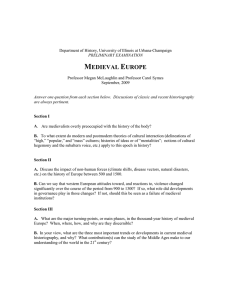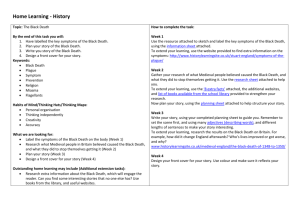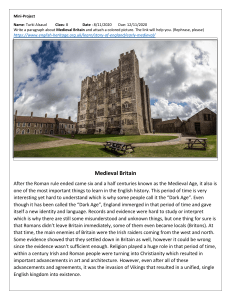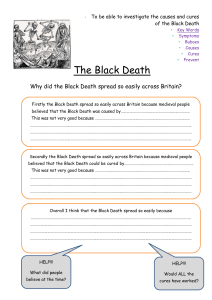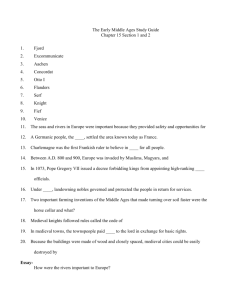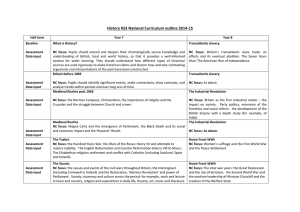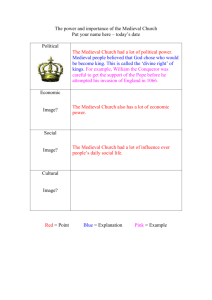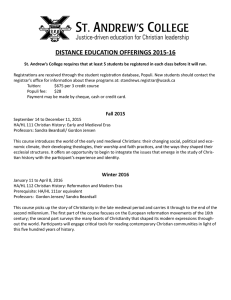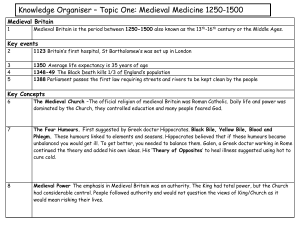B I 1688 RITISH
advertisement
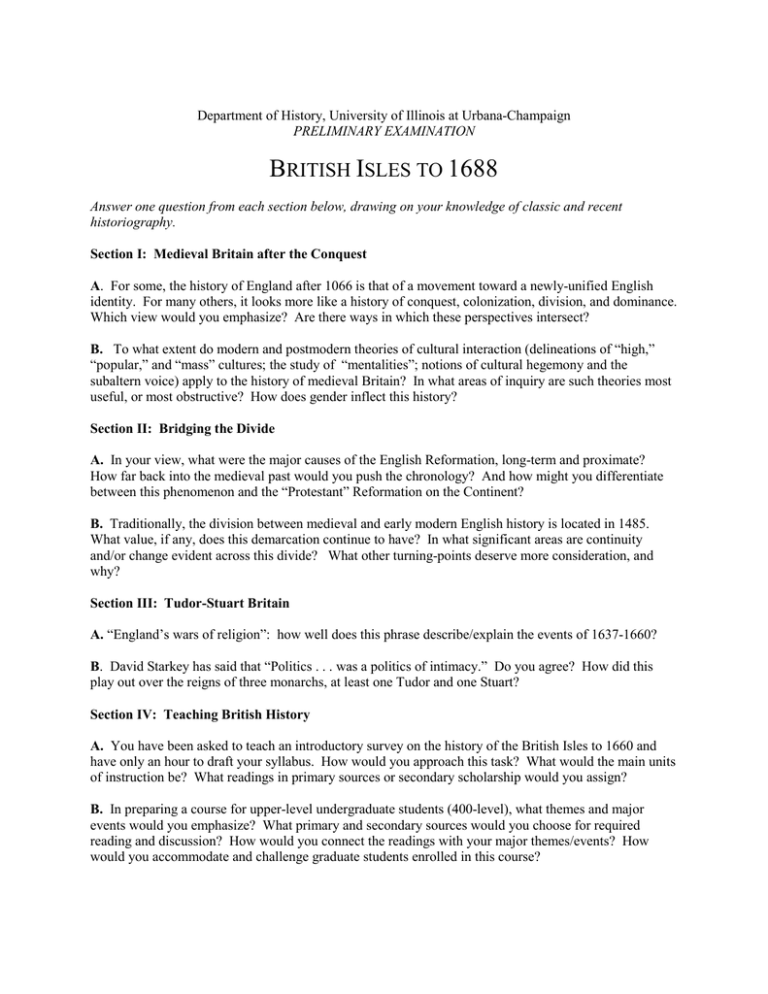
Department of History, University of Illinois at Urbana-Champaign PRELIMINARY EXAMINATION BRITISH ISLES TO 1688 Answer one question from each section below, drawing on your knowledge of classic and recent historiography. Section I: Medieval Britain after the Conquest A. For some, the history of England after 1066 is that of a movement toward a newly-unified English identity. For many others, it looks more like a history of conquest, colonization, division, and dominance. Which view would you emphasize? Are there ways in which these perspectives intersect? B. To what extent do modern and postmodern theories of cultural interaction (delineations of “high,” “popular,” and “mass” cultures; the study of “mentalities”; notions of cultural hegemony and the subaltern voice) apply to the history of medieval Britain? In what areas of inquiry are such theories most useful, or most obstructive? How does gender inflect this history? Section II: Bridging the Divide A. In your view, what were the major causes of the English Reformation, long-term and proximate? How far back into the medieval past would you push the chronology? And how might you differentiate between this phenomenon and the “Protestant” Reformation on the Continent? B. Traditionally, the division between medieval and early modern English history is located in 1485. What value, if any, does this demarcation continue to have? In what significant areas are continuity and/or change evident across this divide? What other turning-points deserve more consideration, and why? Section III: Tudor-Stuart Britain A. “England’s wars of religion”: how well does this phrase describe/explain the events of 1637-1660? B. David Starkey has said that “Politics . . . was a politics of intimacy.” Do you agree? How did this play out over the reigns of three monarchs, at least one Tudor and one Stuart? Section IV: Teaching British History A. You have been asked to teach an introductory survey on the history of the British Isles to 1660 and have only an hour to draft your syllabus. How would you approach this task? What would the main units of instruction be? What readings in primary sources or secondary scholarship would you assign? B. In preparing a course for upper-level undergraduate students (400-level), what themes and major events would you emphasize? What primary and secondary sources would you choose for required reading and discussion? How would you connect the readings with your major themes/events? How would you accommodate and challenge graduate students enrolled in this course?
